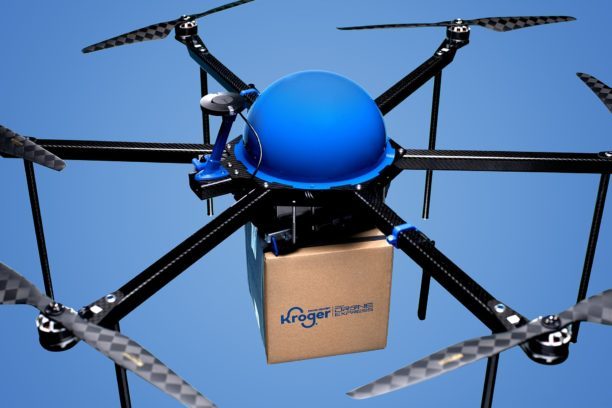DEXA’s NEPA Testing Highlights Noise Mitigation and Environmental Responsibilit
Noise is a major concern for consumers and a critical factor in gaining community acceptance for drone delivery technology. As companies refine their systems, addressing noise issues is a priority for successful integration into daily life. DEXA (Drone Express), a company specializing in autonomous drone delivery, recently completed the National Environmental Policy Act (NEPA) testing with a Finding of No Significant Impact (FONSI).

Environmental Testing and Noise Mitigation
NEPA noise testing is essential to ensure that drone delivery operations align with environmental standards. This process evaluates noise impacts, focusing on public health and environmental quality. DEXA’s use of the FAA’s Programmatic Environmental Assessment (PEA) Checklist in North Carolina was a milestone in streamlining environmental reviews.
“Completing the PEA Checklist is a big win for DEXA, the FAA, and the industry at-large,” said Russell Kline, Chief Regulatory Officer at DEXA. “Being the first company to be evaluated against these criteria and utilize this new, streamlined process shows everyone that the process works, and that DEXA is a central player in drone delivery.”
By using the PEA Checklist, DEXA avoided redundant studies, enabling operations in pre-approved areas while reducing costs and timelines. This efficiency demonstrates the industry’s ability to implement environmentally responsible practices that also consider noise levels.
Balancing Innovation with Responsibility
Community acceptance of drone delivery relies on minimizing disruption. Noise concerns, often raised during public reviews, can significantly influence the adoption of new technologies. DEXA’s commitment to eco-friendly drone technology, as shown in its NEPA results, aligns with this goal.
“Our successful NEPA testing results reflect our unwavering commitment to environmental stewardship,” said Beth Flippo, CEO of DEXA. “We are dedicated to operating responsibly and sustainably while providing innovative delivery solutions that meet the needs of our customers. We aim to create a better future, leaving the world a better place for our children.”
The Path Forward
As more companies develop drone delivery systems, addressing environmental and noise concerns will remain a focal point. Public acceptance depends on transparent efforts to minimize the impact on communities while delivering benefits like reduced emissions and improved logistics.
To learn more about DEXA and its approach to sustainable drone delivery, visit flydexa.com.
Want DRONELIFE news delivered to your inbox every weekday? Sign up here.
Read more:
- DEXA Expands Drone Delivery with New FAA BVLOS Waiver
- Drone Express Wants to Become the Amazon of Drone Delivery
- Drone Express Launches Delivery Operations in Winston-Salem, NC

Miriam McNabb is the Editor-in-Chief of DRONELIFE and CEO of JobForDrones, a professional drone services marketplace, and a fascinated observer of the emerging drone industry and the regulatory environment for drones. Miriam has penned over 3,000 articles focused on the commercial drone space and is an international speaker and recognized figure in the industry. Miriam has a degree from the University of Chicago and over 20 years of experience in high tech sales and marketing for new technologies.
For drone industry consulting or writing, Email Miriam.
TWITTER:@spaldingbarker
Subscribe to DroneLife here.







Leave a Reply